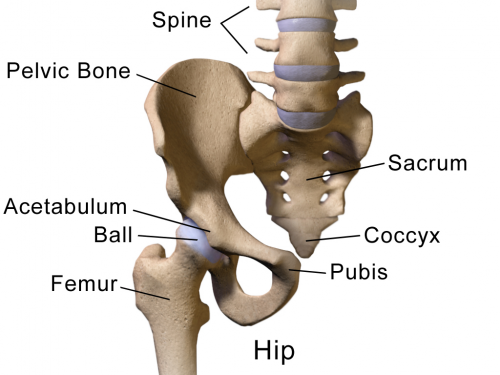This article has been reviewed according to Science X's editorial process and policies. Editors have highlighted the following attributes while ensuring the content's credibility:
fact-checked
peer-reviewed publication
trusted source
proofread
Study shows both men and women who are vegetarian face increased risk of hip fracture

Both men and women who follow a vegetarian diet face a 50% greater risk of a hip fracture compared to people who regularly eat meat, according to the results of a large-scale study.
It has been recognized that women who are vegetarian have an elevated risk of hip fracture, but the reasons why are unclear, and studies looking at the impact of a vegetarian diet on men have been small scale and inconclusive.
Researchers at the University of Leeds have analyzed data on 413,914 people—both men and women—and it gives the first indication that vegetarian men also face a greater risk of hip fracture than men who regularly eat meat. It also identifies some of the factors that may be putting vegetarians—both male and female—at increased risk.
Recruited between 2006 and 2010, the individuals in the study—all part of the UK Biobank project—provided information on their diet and were classed as either a regular meat eater who ate meat five or more times a week; an occasional meat eater consuming meat fewer than five times week; pescatarian where they ate fish but not meat; or vegetarian where they could consume dairy foods but not fish or meat.
The data on the individuals was linked to their hospital records and a cases of hip fracture were recorded in the follow-up period to 2021.
The paper—Risk of hip fracture in meat-eaters, pescatarians, and vegetarians: a prospective cohort study of 413,914 UK Biobank participant—is published in the journal BMC Medicine.
Among the 413,914 participants, there were 3,503 cases of hip fracture, an overall incidence rate of less than one percent (0.8%).
Although the overall risk of having a hip fracture was low, the relative risk between vegetarians and regular meat eaters was large. The researchers found:
- Vegetarians had a 50% greater risk than regular meat-eaters, regardless of sex.
- There was no difference in risk between occasional and regular meat-eaters.
- Pescatarians had a slightly greater risk (8%) than regular meat-eaters, but this was a non-significant difference.

Relative risks—and real-world cases
The scientists calculated how these relative differences may translate to real-world cases.
They predicted on average 6.5 regular meat eaters and 6.5 occasional meat eaters would experience a hip fracture, while there would be 7 cases among pescatarians and 9.5 cases among vegetarians.
James Webster, a doctoral researcher in the School of Food Science and Nutrition who led the study, said, "Hip fractures are a growing problem in an aging society, and can trigger debilitating health conditions and a loss of quality of life."
"This study shows that while vegetarians face a greater risk of hip fracture than meat-eaters—at 50%—this translates to just 3 more hip fractures per 1,000 people over 10 years. The health benefits of a vegetarian diet, including a lower risk of cancer and cardiovascular disease, may still outweigh any increases in hip fracture risk."
"Our analysis suggests that low BMI may be a key factor in why their risk is higher."
"Additionally, vegetarians were about 17% less likely to meet protein recommendations than meat-eaters. So, important messages from our study are that vegetarians need to ensure they are getting a balanced diet with enough protein and maintain a healthy BMI. This will help vegetarians to maintain healthy bones and muscles."
Professor Janet Cade, who leads the Nutritional Epidemiology Group at the University of Leeds and supervised the research, said, "Hip fracture is a major health issue and diet may have a part to play in affecting risk."
"This research, using the large UK Biobank, confirms our previous work, showing that a vegetarian diet increases risk of hip fracture compared to regular meat eaters, in both men and women. While vegetarian diets have health benefits, understanding diet quality and the balance of key nutrients may help to reduce risk and improve future bone health."
More information: James Webster et al, Risk of hip fracture in meat-eaters, pescatarians, and vegetarians: a prospective cohort study of 413,914 UK Biobank participants, BMC Medicine (2023). DOI: 10.1186/s12916-023-02993-6



















